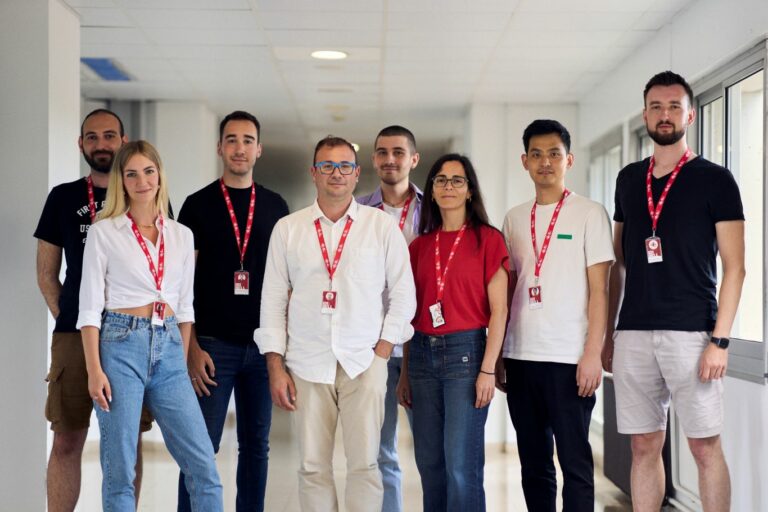Researchers discover macrophages’ key role in gut regeneration following radiotherapy and inflammatory bowel disease
March 12, 2025

- The results obtained in an IDIBELL study open the door to therapies based on these cells to treat the adverse effects of radiation and improve inflammatory bowel disease.
The Cellular Plasticity and Regeneration group, led by Dr. Jordi Guiu, has published a new study in the scientific journal Gastroenterology, which describes the fundamental role of macrophages in intestinal regeneration following injury. This mechanism could be pivotal for patients suffering from side effects of abdominal radiotherapy as well as those suffering from inflammatory bowel disease, such as Crohn’s disease or ulcerative colitis. The study, signed by predoctoral researcher Ilias Moraitis, reveals that macrophages play a key role in intestinal regeneration by interacting with intestinal epithelial cells.
Macrophages: unexpected protagonists in intestinal regeneration
Traditionally, macrophages have been studied for their roles in immune defence and the removal of dead cells. However, this study reveals that these cells also play an active role in intestinal regeneration, initiating a dialogue with intestinal stem cells to activate the regeneration program after injury. As Ilias Moraitis explains, “In response to damage, macrophages become a real pharmaceutical industry that produces essential molecules to stimulate the regeneration of intestinal tissue.”
This discovery could have significant implications for patients with inflammatory bowel diseases or those experiencing side effects from radiotherapy, conditions where proper intestinal regeneration is crucial to prevent serious complications such as bleeding, malabsorption, or intestinal ulcers.
Towards new macrophage-based therapeutic strategies
In recent years, advances in oncology have significantly improved cancer patient survival. However, while chemotherapy and radiotherapy are effective treatments, they can also damage healthy tissues, leading to side effects like inflammation and destruction of the intestinal epithelium. Similarly, patients with inflammatory bowel disease experience chronic inflammation that harms the intestinal tissue and impairs its ability to regenerate.
Given the importance of macrophages in this process, this study opens the door to new therapeutic strategies aimed at stimulating their action and improving the recovery of intestinal tissue. Dr. Jordi Guiu concludes: “So far, we only have palliative treatments for these conditions. Regenerative therapies based on the enhancement of the role of macrophages could become new immunotherapies to treat these pathologies more effectively and significantly improve the quality of life of patients.”
RELATED CONTENT
Reference article: Ilias Moraitis et al. Mucosal macrophages govern intestinal regeneration in response to injury. Gastroenterology. 2025.

